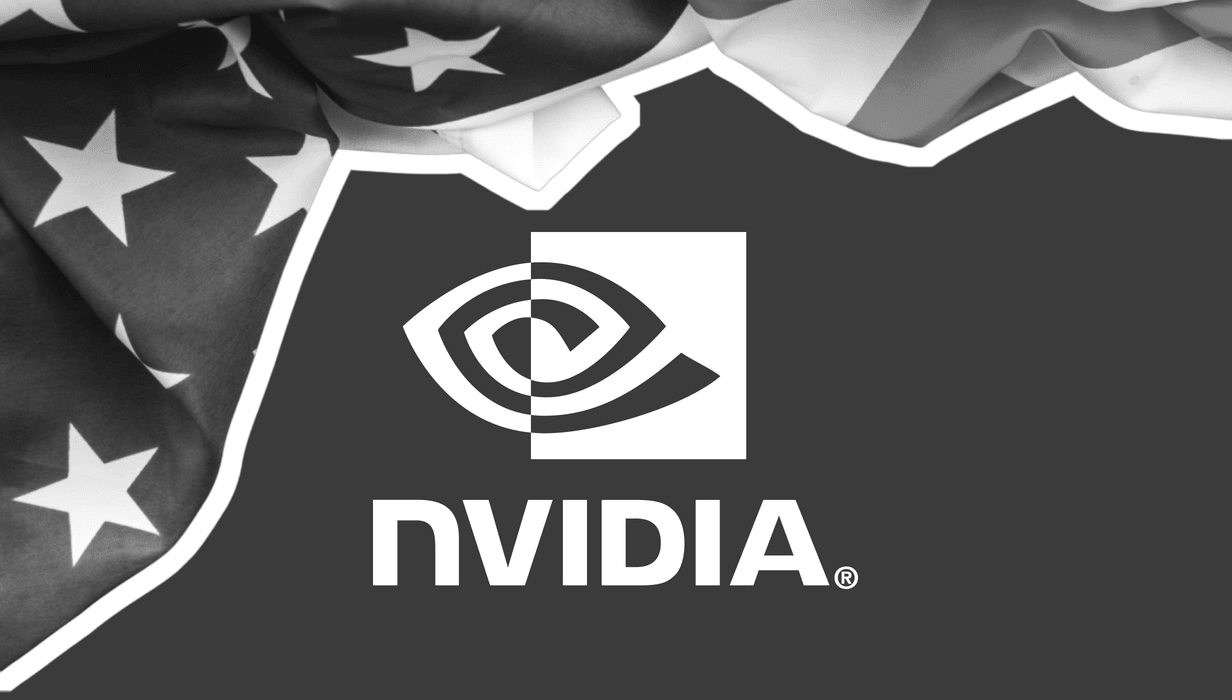The US Tariff News Continues – Nvidia to Move Production Locally

After announcing big plans to expand in Asian markets to boost AI chip production and data centres, Nvidia plans to circle back to its homeland to continue mass production of semiconductors and processing units.
The company’s products support global AI-powered products, especially self-driving cars, robotics, and generative artificial intelligence solutions.
The announcement adheres to Trump’s reciprocal tariffs introduced earlier this month, especially after the rising tension with China. Let’s review the impact of this US tariff news and the future implications.
Nvidia’s $500 Billion Boost
On April 14th, Nvidia announced, for the first time, that it would produce its AI supercomputers in the United States. This includes the manufacturing of its AI-centric computing units, which were previously assembled in Asia.
The company is now expanding its AI development and manufacturing with a $500 boost for the coming four years.
The update follows Nvidia’s explosive rise in market value, peaking currently at $3 trillion last year and hitting a record stock price between December 2024 and January 2025.
Nvidia’s shift is seen as a business strategy and a geopolitical move, avoiding Nvidia tariffs and aligning with rising demand for AI to secure long-term growth, facing US-China tariffs.
Less Reliance on China and Taiwan
Nvidia’s decision to bring manufacturing to the US addresses growing worries about the semiconductor industry’s dependence on Taiwan and China. These concerns were translated into a cumulative 145% tax rate on imported Chinese goods and elevated taxes on Asian producers.
Therefore, Nvidia’s decision also complies with Trump’s trade policy to rely less on imported goods than on national security and importance.
The rising tension between the USA and China has impacted Taiwan Semiconductor Manufacturing Company (TSMC), where most of Nvidia’s chips have traditionally been made. As such, any disruption will have catastrophic consequences for global tech supply chains.
The company has already started producing its Blackwell AI chips in TSMC factories in Phoenix, Arizona. Additionally, it is partnering with Foxconn to build factories in Houston and with Wistron to build its manufacturing facility in Dallas.
Nvidia will boost plant planning and design using digital twinning, with expectations to reach mass production in less than 15 months.
Public Reaction
The response has been broadly positive, especially by political figures. The White House credited Nvidia’s decision to US policies favouring “Made in America” technologies.
Industry analysts praised the strategic foresight, while labour unions welcomed the job creation. The company’s CEO backed this decision and praised the way it responds to market changes, “Adding American manufacturing helps us better meet the incredible and growing demand for AI chips and supercomputers, strengthens our supply chain and boosts our resiliency,” commented the CEO, Jensen Huang.
Upcoming Tariffs and Exemptions
This shift presents a proactive plan amidst the implementations and exemptions of US tariffs on global markets and industries.
The US government launched formal Section 232 investigations into imports of pharmaceuticals and semiconductors, citing national security concerns. The probes aim to assess whether overreliance on foreign sources from Europe and Asia poses strategic vulnerabilities.
While the two sectors are now on the tariff exemptions list, investigations are expected to pave the way for targeted import taxes as part of a broader effort to rebuild critical supply chains within the US.
A few days ago, Trump signalled that tariff exemptions would be made for high-volume consumer goods, such as smartphones, computers, and personal electronics. This comment brought relief to tech companies like Apple, which would suffer massively from any trade disruptions.
The Wall Street Journal reported further comments by Trump about upcoming tariffs and exceptions, including automobiles, steel, and aluminium.
Final Takeaways
Nvidia’s relocation presents a proactive, strategic step amidst the controversial US tariff news. The company secures a competitive edge by shifting production ahead of potential Nvidia tariffs while aligning with national interests.
This decision is critically important as more restrictions are anticipated on imported semiconductors from Asian markets, which could massively affect the company.
Disclaimer: This article is for informational purposes only. It is not financial advice and should not be relied upon for investment decisions. Always do your own research and consult a financial advisor before investing.





